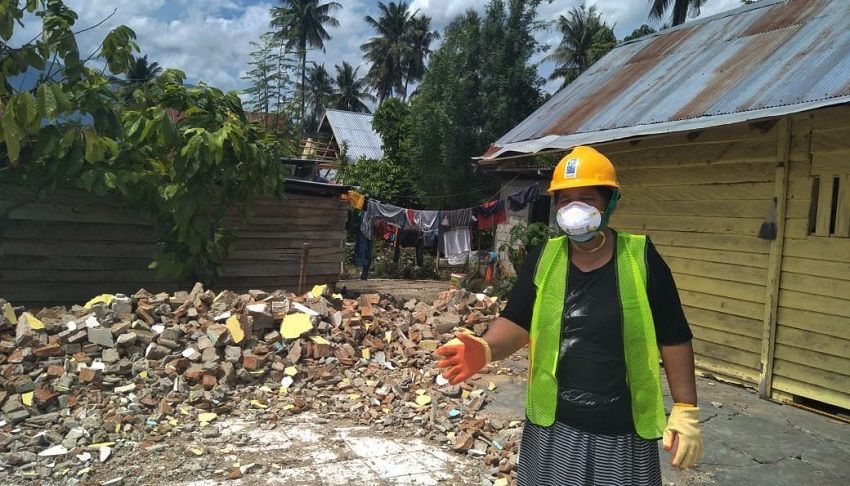Exclusive: Inside the rebuilding of Central Sulawesi
By Nurfilzah Rohaidi
UNDP Indonesia led a cash-for-work programme that provided a source of income to disaster survivors.

Image: UNDP Indonesia
Since then, there has been “major progress” in clearing the debris from quake-hit areas, says Christophe Bahuet, Resident Representative of UNDP Indonesia, who is part of a three-year project to rebuild the devastated areas. “It’s a top priority for us,” he says.
Recovering and rebuilding
UNDP Indonesia worked with central and local government and local communities to provide immediate assistance in the short term, as part of its US$1.4 million rapid disaster relief programme. “We have seen how UNDP can make a quick impact. We went on the ground very quickly, we were working with communities, we paid cash for work,” says Bahuet.
Many buildings were so badly damaged that they needed to be demolished and rebuilt. In the city of Palu, a destroyed irrigation system was preventing farmers from planting crops. The UNDP Indonesia team worked with disaster victims and paid them to clean debris, providing a source of income for those suddenly left with no livelihood.
The first stage ran for 25 days, and 300 villagers worked to clear debris from damaged homes and schools, and carried out community improvement projects such as road repairs. The second phase kicked off in January, running for three months and involving around 3,500 villagers.
The programme also focused on salvaging materials that could be used for rebuilding and construction. In one village, workers managed to reclaim US$500 worth of material.
And in the long term, UNDP Indonesia is working with KfW Development Bank, an initiative by the German government, to rebuild critical infrastructure facilities in Central Sulawesi and West Nusa Tenggara. “Now we're working on construction of infrastructure so we can rebuild lives, and rebuild even better in the areas that were affected,” Bahuet continues. KfW has provided €25 million (US$28.4 million) worth of funding for this three-year programme, called PETRA.
Introducing reform in Indonesia
UNDP Indonesia is also introducing reforms in the justice system. “We really look at accountability, transparency, and integrity of the justice sector in Indonesia, working with courts all over Indonesia,” Bahuet shares. “How can we have, for instance, a whistleblower system?”
SUSTAIN, a five-year programme to modernise Indonesia’s courts and introduce transparency, will come to an end this year. The programme provided technical support to develop an online whistleblowing system in 16 pilot courts across the country. Through this system, citizens can report suspected violations by judges and other court staff directly to the Supreme Court’s Oversight Body.
And the programme helped to introduce a digital case management system which allows the public to track the status of court cases. “A lot of it has to do with transparency,” Bahuet explains. “How can you know where you legal case stands, using technology?”
And UNDP Indonesia is exploring innovative financing “very actively”. UNDP’s Innovative Financing Lab is helping the country to pursue alternative funding, such as Islamic finance, to achieve the Sustainable Development Goals. “Now you have new financing instruments that are being developed, a very good example is a green Islamic bond,” says Bahuet.
In particular, the Lab is focusing on zakat, a religious obligatory payment for Muslims that is calculated based on one’s yearly income. Indonesia is world’s largest Muslim nation by population, and is the first country that has tapped into the potential of zakat, according to the UNDP.
The funds from zakat contribute to a blended financing mechanism, along with funds from a local bank and the Global Environment Facility. This funding has helped to build micro-hydropower plants in Sumatra’s Jambi province, providing much-needed electricity to over 4,000 people, Bahuet continues. “It's changing lives of the community people who basically had no electricity at night, now they can actually read, study,” he says.
From natural disasters to rampant corruption, Indonesia faces many defining challenges. It is up to government, civil society, private sector, and organisations like the UNDP to work together to tackle them - as the saying goes, it takes a village.